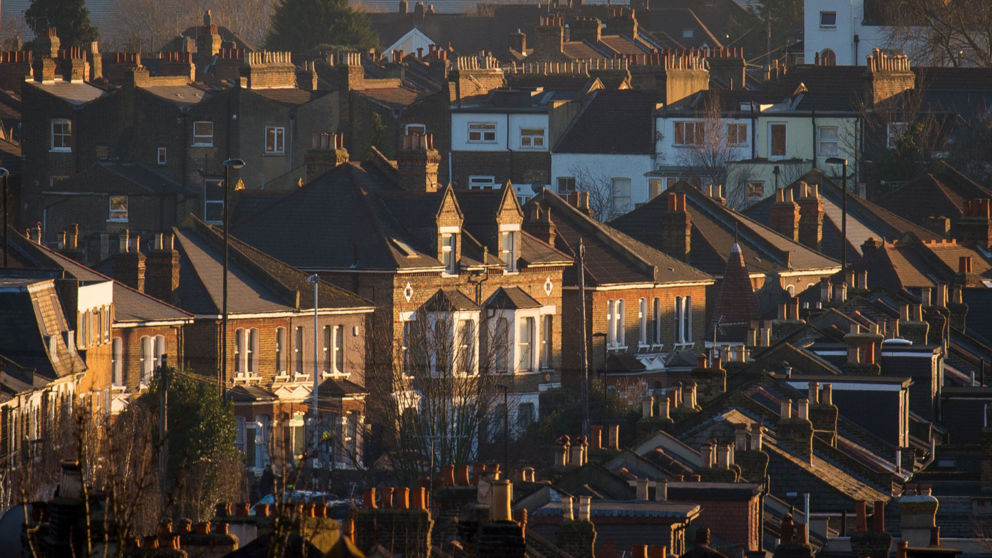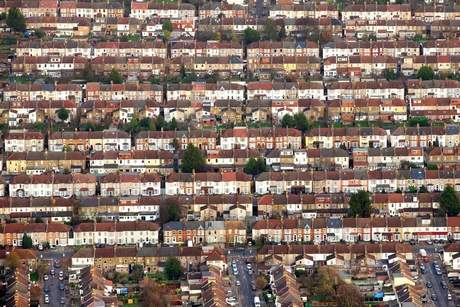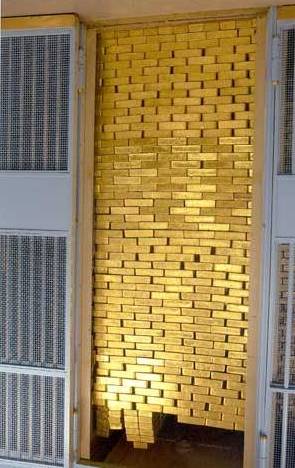Young First Time Buyers and Investors - what to do insights
08-29-2018
PropertyInvesting.net team 
House Prices Have Skyrocketed: House prices have tripled in the last 30 years in most areas and people who purchase properties in the last 25 years have made handsome returns. Those with the foresight to purchase more than one property – as many buy-to-let investors did in the period 1998 to 2015 – will have been even more handsomely rewarded. Particularly in SE England, house prices have skyrocketed from 1998 to 2016, with a brief period of stagnation after the 2008 crash.
Younger People: This article is meant for the younger potential investors and  practice investors out there. There is a generational shift in the socio-economic make up of property ownership and it is so much more difficult to purchase property for younger people now than in the late 1990s for instance.
practice investors out there. There is a generational shift in the socio-economic make up of property ownership and it is so much more difficult to purchase property for younger people now than in the late 1990s for instance.
Why Have Prices Risen? Firstly lets look back and try and understand why prices have risen so rapidly in such a pervasive manner – to items some of the reasons:
• Banks have allowed double incomes of men and women to be included in calculations for mortgages
• Women often buy property on their own – this was very uncommon before the 1990s
• The population of the UK has been rising at 250,000 to 450,000 people each year for the last 15 years
• Building of property has been lagging far behind new households – only 110,000 to 180,00 new homes have been built each year for the last 15 years
• People desire to own their own home has not abated
• Councils have been building almost no new properties, instead many councils have been selling their council houses to tenants in the last 20 years
• Nimbys all across the UK in every corner and part of the country are constantly trying to stop any development, building or change – keeping a lid on supply
• Lack of suitable building land that is not designated Greenfield or protected – with brownfield sites being expensive and often requiring excessive environmental analysis before any building starts
• Time consuming, expensive and slow planning processes and procedures that kill most projects before a brick is ever laid
• Access to mortgages has increase over the years
• Interest rates have crashed from 15% in 1990 to 0.5% recently – meaning borrowing costs have dropped from around 18% in 1990 to 3% today – meaning servicing loans has become cheaper and hence prices have risen
Don’t Be Defeatist: For the average young person earning say £15,000 to £25,000 in southern England – with house prices even for a flat ranging from say £120,000 to £350,000 – its almost impossible t o afford. Indeed it has to be disheartening.
o afford. Indeed it has to be disheartening.
Rich Kids Find It Easy To Stay Rich: We are now into an environment where the older people are helping the younger people with chunks of money to put down as deposits for their kids or grandkids. This is one reason why the rich will continue to get richer and the poor will stay poor. The middle classes will be squeezed. Any young person with wealthy parents who are willing to give them a leg up will find they get asset wealthy in the future. Those younger people earning low wages with poorer parents that never owned their own property – could be in for a hard time of trying to get out of the rental sector – instead paying the bank and at least being in the game to follow inflation upwards and hence – deflation the value of the loan whilst the bricks and mortar prices escalate thereby making these people asset wealthy.
Don’t Be The Victim – Compete Instead: The very worst things for young people to do is “throw the towel in” – become a victim – and start acting defeatist. Its absolutely essential to keep striving to own our own home. Yes, it’s competitive and lest be frank – if you have poorer parents not able to help – you will be competing against the “rich kids”. But over time, if you scramble and buy some property somewhere and are able to add value to it – in the long term we believe you will do very well – and it will be the only way to gain serious wealth as inflation continues to rage away.
Traits To Help Buy Your First Property: Some of the traits you need to get used to.jpg) if you want to be wealthy as you get older – and we mean owning a property – because that’s about the only way to protect and build wealth in this country unless you own your own business – is:
if you want to be wealthy as you get older – and we mean owning a property – because that’s about the only way to protect and build wealth in this country unless you own your own business – is:
- Save as much as you can each week – set targets
- Buy thinks in charity shops – you don’t have to tell everyone – you can buy super high quality for very little
- Avoid going on many expensive holidays – for instance skiing (which is very dangerous as well)
- Look long at hard at different areas to buy your first home – don’t be snobby – if you cant afford to buy in a nice area – you’ll have to buy in a cheap area instead – just make sure its an “up and coming” area. It might be a longer commute but you will own your own home.
- Rent a very cheap place (or share a rental) so you can save more money
- Work hard and earn as much as you can

- Have a desire and set yourself a target for saving – then buying your first home
- Monitor house prices in different areas – buy as soon as you can be try and avoid buying at the “top if the market” – but don’t be too shy to jump in
- See mortgage brokers and banks to get the best deals and line a mortgage up in principle – find out exactly how much you can borrow and how much cash you need to raise
- Try and find someone that can help with a deposit – or even just in case you run a few thousand pounds short for a while – in the first few years
- At a push, you might want to ask someone to be your mortgage guarantor – person of last resort – in case this helps with the banks
- Try and buy a property with a spare room that can be let to a lodger (or two rooms to two lodger) thereby getting the lodgers to pay for your mortgage!
Mistake: The big mistakes many young people make are more of less the opposite to the points above. They Don’t Do These Things: They “throw the towel in” – give in early – especially when they have a large student debt and instead change tactics and:
opposite to the points above. They Don’t Do These Things: They “throw the towel in” – give in early – especially when they have a large student debt and instead change tactics and:
- Go on lots of expensive holidays – to make up for the low feeling of not being able to own their own home
- Spend lots of money on expensive dinners out, drinking and leisure – plus clothes and very expensive foods and coffee etc
- Don’t save anything
- Decide to rent a very large property in an expensive area – in part to compensate for the bad feeling
- Are very picky as to where they want to live – and how far they want to commute – they want to live in trendy areas close to their friends and hence rent expensive properties in their expensive areas – meaning they have zero chance of saving for a deposit
- Get hung up on student loan payments – thinking this will negatively affect their
 chances of securing a mortgage
chances of securing a mortgage - Never even do a calculation to show how much cheaper it normally is to service a loan compared to paying rent to a landlord
- Never consider buying a property and renting out a room to a friend to help pay the mortgage
Get Lodgers To Pay Your Mortgage: Now just imagine how it would feel to own a 3 double bedroom flat – then rent two of the rooms to two of your friends – for large monthly rental payment – that is so high it actually pays for your full mortgage. Yes – its quite feasible particularly for younger people in lower prices areas like the Midlands and Northern England. If you don’t own your own property and are ken to own a property – try doing the calculation. Okay, you will have to “put up” with your friends but lets be open minded – you might actually really enjoy living with your friends – and you’ll make lots of money from  it as well. You don’t have to tell them that though. Its none of their business – you are just helping provide some reasonable priced accommodation for them and will be a good landlord to them – and you can select exactly who your lodgers will be – and if you want them to move out – you only need to give a weeks notice – or may be a month if you are feeling very nice.
it as well. You don’t have to tell them that though. Its none of their business – you are just helping provide some reasonable priced accommodation for them and will be a good landlord to them – and you can select exactly who your lodgers will be – and if you want them to move out – you only need to give a weeks notice – or may be a month if you are feeling very nice.
What Not To Do: Just an anecdotal story. We met a chap in Kew – West London – age 27 and earning £55,000 a year plus bonus and shares etc. Very well educated, middle class with professional job. Complained there was no way he could afford a property. We suggested looking in New Cross SE London, Slough – or Wembley – admittedly quite a long commute but worth it in the long run. He gave all the victim arguments and said he wanted to live close to work – the person is living in a swanky flat in Earls Court – one of the most expensive rental areas on the planet. He’s giving all his money to a West End landlord – he’ll never be able to afford to buy a place like that.
What To Do: What we would have done is:
- Rented a cheap place – a room in a cheap area – saved lots of money
- Bought a 2 bedroom flat in Slough – rented a room for £600 a week to help pay the mortgage
- Building Asset Wealth Through Inflation: Expectation is property prices will rise around 5% a year for the next 10 years – hence a £200,000 plat in Slough will have risen by £100,000 in ten years and he’ll have saved around £600 a month on rental payments as well – and have lots of opportunities to add valve to his property by decorating-upgrading etc – and with Crossrail due to arrive Dec 2019 – it’s a pretty low risk option.
Any young first time buyer should seriously consider being a property and renting out a room or two to lodgers - make sure your mortgage company agrees to this – most will agree t o at least one, with some two – and you might even find someone who will lend with three lodgers.
o at least one, with some two – and you might even find someone who will lend with three lodgers.
Lodgers: Lodger demand is particularly strong is the larger cities with rising employment. Make sure you pick good lodgers who have full time jobs, don’t drink much, don’t smoke, don’t have parties all the time, don’t make loads of noise and mess and pay on time. The good news is – with a simple lodger contract – if it does not work out – you can evict them very easily. And if you fall out with a lodger who is a friend – don’t be scared to just give them notice – its should not hold you back.
If you do have lodgers – never talk about money of finances – it will only rile them that you own a property and they don’t – then they are paying for your mortgage because you took the initiative and some risk – but they preferred to take no risk and go on loads of weekend holidays to Croatia!
Inflation all The Way: To all younger potential or actual property investors – there a few near certainties in life. One is that successive governments over history in the UK, USA and Europe have printed currency to create wealth to create an illusion of wealth. Ever since the US dollar was taken off the gold standard by “Trick Dick” Nixon in 1973 – the US dollar along with the UK pound have been fiat currencies – not real money. Every time the economy slows – they just print more curre ncy – and asset prices then are propped up or rise. This printed currency has created bubble all around the world. It’s important to note that most of this ultra low cost currency printed with electronic key-strokes out of thin air – finds its way into the hands of the ultra-rich global investors – who then tend to park it in property. So this printing leads to real estate prices rising sharply – but it tends to affect then global super-cities like New York, London, Paris, Geneva, Monaco, Singapore, Auckland, Amsterdam, Frankfurt, Munich, Sydney and the like. So to all the young investors – longer term its best to keep focussing on the more expensive global cities – because as more currency is printed – it will inflate these property prices at a greater pace than places like Blackpool, Bury, Middlesbrough, Barmouth, Barrow or Belfast.
ncy – and asset prices then are propped up or rise. This printed currency has created bubble all around the world. It’s important to note that most of this ultra low cost currency printed with electronic key-strokes out of thin air – finds its way into the hands of the ultra-rich global investors – who then tend to park it in property. So this printing leads to real estate prices rising sharply – but it tends to affect then global super-cities like New York, London, Paris, Geneva, Monaco, Singapore, Auckland, Amsterdam, Frankfurt, Munich, Sydney and the like. So to all the young investors – longer term its best to keep focussing on the more expensive global cities – because as more currency is printed – it will inflate these property prices at a greater pace than places like Blackpool, Bury, Middlesbrough, Barmouth, Barrow or Belfast.
Gold is Real Money: As a side note, gold is the only “real money” – that keeps its value over the years – it can’t be replaced – this is subject to many Special reports we’ve written over the years. But property is a similar sort of asset – its physical, tangible, you can touch and feel it – you can see it – it can’t be duplicated easily, there is a finite supply, demand is ever present. Technology cannot replace it. As governments around the successively keep printing currency and devaluing their currencies – if you own property – at least one property will still be worth one property. The price will go up in the devalued currency. An example today is Venezuela with 36,000% inflation. Iran is suffering high inflation as its currency crashes – and thence property prices sky-rocket as the currency value decreases. At the end of the day, its property owners that keep their wealth and cash owners lose their wealth in such an environment. In Weimer Germany where hyper-inflation struck in the 1920s, it was only business owners and property owners that survived eco nomically after this devastating hyperinflation. Young people beware – very high inflation can inflict the UK if the currency crashes – so although interest rates would rise sharply, if you survive the interest payment the loan value would drop rapidly and your asset wealth would rise. As long as there is still inflation out there – you will benefit by owning property as the decase roll buy. If you own no property you will be left behind economically and face a elderly life of financial hardship as government steal pensions an tax anyone with cash int eh bank – whilst devaluing the currencies. Of course this is why the rish get richer and the poor stay poor.
nomically after this devastating hyperinflation. Young people beware – very high inflation can inflict the UK if the currency crashes – so although interest rates would rise sharply, if you survive the interest payment the loan value would drop rapidly and your asset wealth would rise. As long as there is still inflation out there – you will benefit by owning property as the decase roll buy. If you own no property you will be left behind economically and face a elderly life of financial hardship as government steal pensions an tax anyone with cash int eh bank – whilst devaluing the currencies. Of course this is why the rish get richer and the poor stay poor.
Where the Rich Live: The rich in the UK – and the rich international people - will increasingly want to live in places like London (Central-West London in particular), Bath, Bristol, Oxford, Cambridge, Winchester, Esher – places like that. It’s very difficult of course because these places are already very expensive but its worth scrambling to get a studio in Earls Court rather than a large house in Bury – albeit if you have 3 lodgers in Bury – you’ll actually be making serious rental money – a different strategy – going for yield rather than asset value increase.

The younger richer people – the very well educated professional men and women – tend to be settling in places like Clapham-Battersea, Borough, Hammersmith and Shoreditch-Hackney at the moment longer term – because of this – we expect prices in these areas to rise sharply. Lower priced areas on the Crossrail line will also zoom up like – Slough, Shenfield, Forest Gate, Acton Main-Willsendon Junction and Abbey Wood. For all desperate first time buyers – go to Abbey Wood and pick up a one bedroom flat quickly before Crossrail opens – you can’t go far wrong!
We hope this Newsletter has helped the younger property investors and potential home owners consider the way forward and given you some good ideas as to how you could own a property. If you have any queries, please contact us on enquiries@proeprtyinvesting.net

